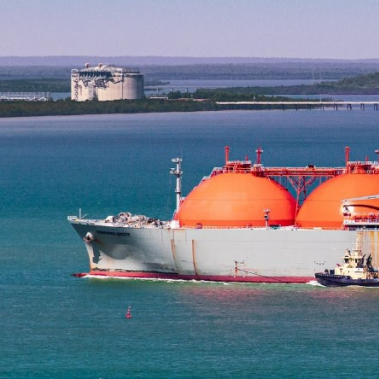Recent economic sanctions against Russia, retaliatory measures by Russia, and conflict-driven constraints in Ukraine have put the global supply of commodities – in particular key Russian and Ukrainian exports such as crude oil and cereals – at risk.
In aggregate, G7 nations have limited reliance on Russia and Ukraine for most commodity imports. In 2020 only 2% of G7 total commodity imports were from Russia and Ukraine, amounting to USD 97 billion. Despite this low overall supply dependency, some member countries still significantly count on Russia for specific commodities such as mineral fuels and natural gas (as shown here).
The Ukraine crisis has put the supply of these commodities particularly at risk, and countries such as Germany have already begun cautioning businesses and households to reduce their gas consumption. Furthermore, the other commodities that G7 countries import from Russia and Ukraine largely consist of key raw materials such as fertilizers and aluminum. Downstream impacts are already being felt in G7 economies, which will only intensify in the coming months.
Compounding the impacts of reduced commodity supply are the cascading effects of logistics constraints and increased energy prices. Tanker rates, for example, have increased as much as 240% since the crisis. Such trends are expected to further accelerate commodity price hikes. Estimates show that the rise in fertilizer prices fueled by surging energy prices, for example, may subsequently lead to a doubling of production costs of staples such as wheat.
In response to the crisis, some G7 countries have called for increased national production in the short term for key commodities such as cereals, while others are looking to find alternative sources to meet domestic demand or accelerating strategic transitions (as in the energy sector) that will reduce dependency over time.
Ultimately, the effects of the Ukraine crisis on the commodity market will continue to have implications for G7 countries in the foreseeable future – directly or indirectly.



